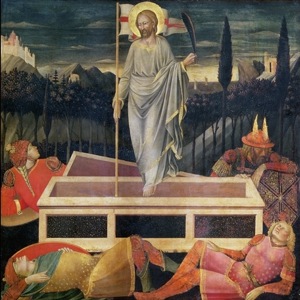
 T IS QUITE POSSIBLE the best thing to happen to me is to understand my own mortality. Birthdays at my age will do that. The physical, mental, and emotional challenge of caring for young children will do that. Failure and uncertainty will do that. We are but dust and to dust we shall return. For me at least, it is way past time to repent and believe in the Gospel. This is a gift of Ash Wednesday.
T IS QUITE POSSIBLE the best thing to happen to me is to understand my own mortality. Birthdays at my age will do that. The physical, mental, and emotional challenge of caring for young children will do that. Failure and uncertainty will do that. We are but dust and to dust we shall return. For me at least, it is way past time to repent and believe in the Gospel. This is a gift of Ash Wednesday.
Facing mortality may wake us up to what God wishes for us: The gift of Christ’s sacrifice is the ultimate show of love, for he wants us to share in his eternal life—where death has no dominion. “…the love of God doesn’t end in death. It goes beyond it. Death is no hindrance to the love of God.” (Peter G. van Breemen, SJ, As Bread That Is Broken, pg.169)
 OLY WEEK is upon us. Now, in these last days of Lent, the tension in the daily Gospels is palpable. There is no question Jesus will suffer horrifically and die. Peter van Breemen states, “The Gospel should be read from the viewpoint of the resurrection because that is the way it was written.“ (As Bread That Is Broken, pg.167) Central to our faith is the Resurrection. We know this intellectually. We profess this. But music has has power to describe the indescribable and speak the ineffable. That is what our choirs must do this Holy Week.
OLY WEEK is upon us. Now, in these last days of Lent, the tension in the daily Gospels is palpable. There is no question Jesus will suffer horrifically and die. Peter van Breemen states, “The Gospel should be read from the viewpoint of the resurrection because that is the way it was written.“ (As Bread That Is Broken, pg.167) Central to our faith is the Resurrection. We know this intellectually. We profess this. But music has has power to describe the indescribable and speak the ineffable. That is what our choirs must do this Holy Week.
Most especially during Holy Week, sacred song and prayer become indistinguishable (although this is always our goal!) How does this happen? The period of Lent prepares us in unexpected ways. Take for example, Jesus’ Transfiguration on the second Sunday of Lent. God shows us as he really is—something beyond our human comprehension. Christ’s revelation in the Transfiguration is echoed in the communion antiphon on August 6th—the Feast of the Transfiguration: “When Christ appears, we shall be like him, for we shall see him as he is.”
This is truly God’s wish for us—to see him as he IS, which in turn reveals just how much God truly loves us. From the familiar text of John 3:16: “For God so loved the world that he gave his only Son, so that everyone who believes in him might not perish but might have eternal life.”
 HIS HOLY WEEK especially, we must sing everything from the viewpoint of the resurrection, of God’s overpowering love. This includes the emotional roller coaster of Palm Sunday. This includes the confusion the disciples feel of Christ’s example in washing their feet. This includes the suffering of Good Friday, for Good Friday brings us the greatest hope of all. For death has no power over God, and God wants the same for us.
HIS HOLY WEEK especially, we must sing everything from the viewpoint of the resurrection, of God’s overpowering love. This includes the emotional roller coaster of Palm Sunday. This includes the confusion the disciples feel of Christ’s example in washing their feet. This includes the suffering of Good Friday, for Good Friday brings us the greatest hope of all. For death has no power over God, and God wants the same for us.
Your choir’s preparation for Holy Week has been a great prayer. This week, your song and prayer will be indistinguishable. Sing with great joy and hope. Christ’s love is more than you can bear.
